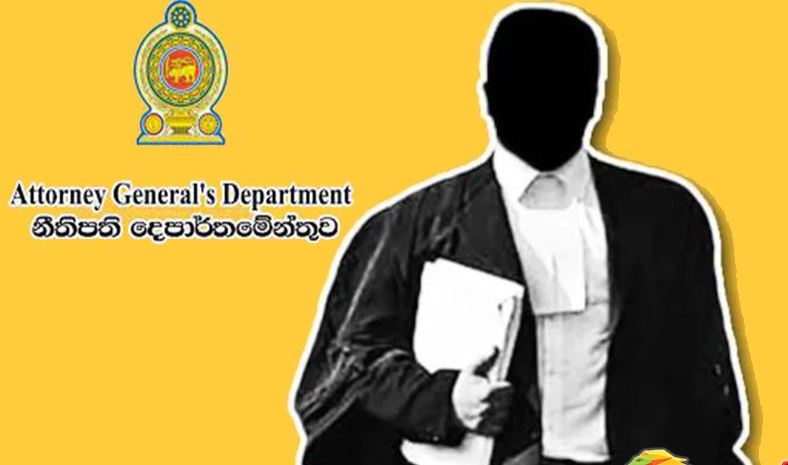-By Special Legal Affairs Correspondent, Lanka-e-News

(Lanka-e-News -06.June.2025, 10.40 PM) In a revelation that could send shockwaves through Sri Lanka’s legal and financial institutions, Lanka-e-News has uncovered that three major case files related to illegal pyramid schemes—submitted for prosecution during the Mahinda Rajapaksa era—were never actioned upon, and instead discreetly buried in the Attorney General’s Department archives. The question now is: Who was responsible? And why were billions in public losses ignored?
In December 2011, the Central Bank of Sri Lanka concluded investigations into three companies that had allegedly operated fraudulent pyramid schemes targeting poor and vulnerable segments of society. Following internal inquiries, the Bank formally submitted three legal briefs to the Attorney General’s Department, recommending criminal prosecution.
The Central Bank’s reference number was 02/17/900/0041/01, and the AG Department registered it under CR1/AML/CFT/05/2012. These files, say sources, contained explosive material—close to 2,000 pages of confidential intelligence, investigation reports, and financial evidence—all pointing to systematic financial abuse.
Yet, to this day, no charges have ever been filed. The companies quietly shut down by 2015, after allegedly funneling over Rs. 14 billion abroad. By then, the scam artists had vanished, and the trail had gone cold.
At the heart of this developing scandal is an unnamed senior official, identified only as “Peiris”, who at the time served as a senior state counsel and now reportedly holds a senior legal or diplomatic position. He was the official assigned to handle the Central Bank’s files within the AG’s Department.
Sources claim that Peiris had two clear responsibilities:
If the evidence was sufficient, recommend prosecution of the companies involved.
If not, inform the Central Bank and recommend further investigations via the Criminal Investigation Department (CID).
Instead, Peiris appears to have done neither. What he did instead has stunned internal legal circles.
Internal documents from the AG’s Department show that the only recorded action taken by Peiris was a handwritten instruction—“R.R.” (Return to Registry)—scribbled on a cover sheet and initialled with his abbreviated signature.
In short, he ordered the file to be shelved—permanently—and without any supervisory clearance. No indictment, no communication with the Central Bank, and no formal legal advice. The files were quietly boxed up and sent to the department’s archives.
Notably, this action was against department policy, which clearly states that case files may only be archived after formal instructions are issued or prosecution is complete.
The physical file itself is conspicuous: approximately 8 inches thick, containing nearly 2,000 pages. It includes evidence gathered by the Central Bank's Financial Intelligence Unit (FIU) on how the schemes operated, who profited, and how funds were routed offshore.
The AG Department’s own records show that only two pages of internal notes exist—the first and last—both bearing markings attributed to Peiris. No other official appears to have reviewed the content or even known of its existence.
This deeply buried episode only came to light recently when a whistleblower inside the AG’s Department was reportedly motivated to revisit the case after observing the department’s swift and public suspension of a female officer. She had allegedly engaged in an inappropriate phone conversation with a journalist—a vastly less consequential breach compared to what Peiris is accused of.
The contrast in disciplinary action has raised serious questions:
“If a junior officer can be suspended over a private phone call, what should the penalty be for secretly shelving Rs. 14 billion worth of fraud cases?” a legal analyst questioned.
Critics are now asking whether Peiris acted on his own—or under political pressure. The year 2011 was a politically sensitive period, during which the Rajapaksa regime was accused of shielding cronies involved in financial malpractice.
Did Peiris act to protect politically connected financial criminals? Or was this a case of indifference and incompetence? Either way, the AG’s Department cannot remain silent any longer.
The issue is further complicated by the fact that Peiris had no authority to unilaterally archive the file. Department regulations demand that such decisions must be made by supervising officers or the Solicitor General. He bypassed all procedures.
The existence of the file and its handling by Peiris is now known to multiple senior officials inside the AG’s Department, according to sources who have reviewed the file since the whistleblower disclosures.
Lanka-e-News urges the Attorney General to open an independent internal inquiry, and make public the reasons why one of the most significant financial fraud cases of the past two decades was hidden from view.
There must also be clarity about Peiris’s current position—whether he remains in government service, whether he has access to sensitive files, and whether he should be investigated for misconduct, dereliction of duty, or worse.
Dear Attorney General,
This article is intended to draw your attention to what appears to be a long-concealed procedural violation of grave national importance. If Peiris or any other party wishes to respond or clarify their role in this matter, Lanka-e-News is open and willing to publish their explanation in full.
The public deserves answers. The poor who lost their life savings deserve justice. And Sri Lanka’s legal system deserves to restore its credibility.
Reported by: A Special Correspondent for Legal Affairs, Lanka-e-News
---------------------------
by (2025-06-06 17:10:18)
Leave a Reply